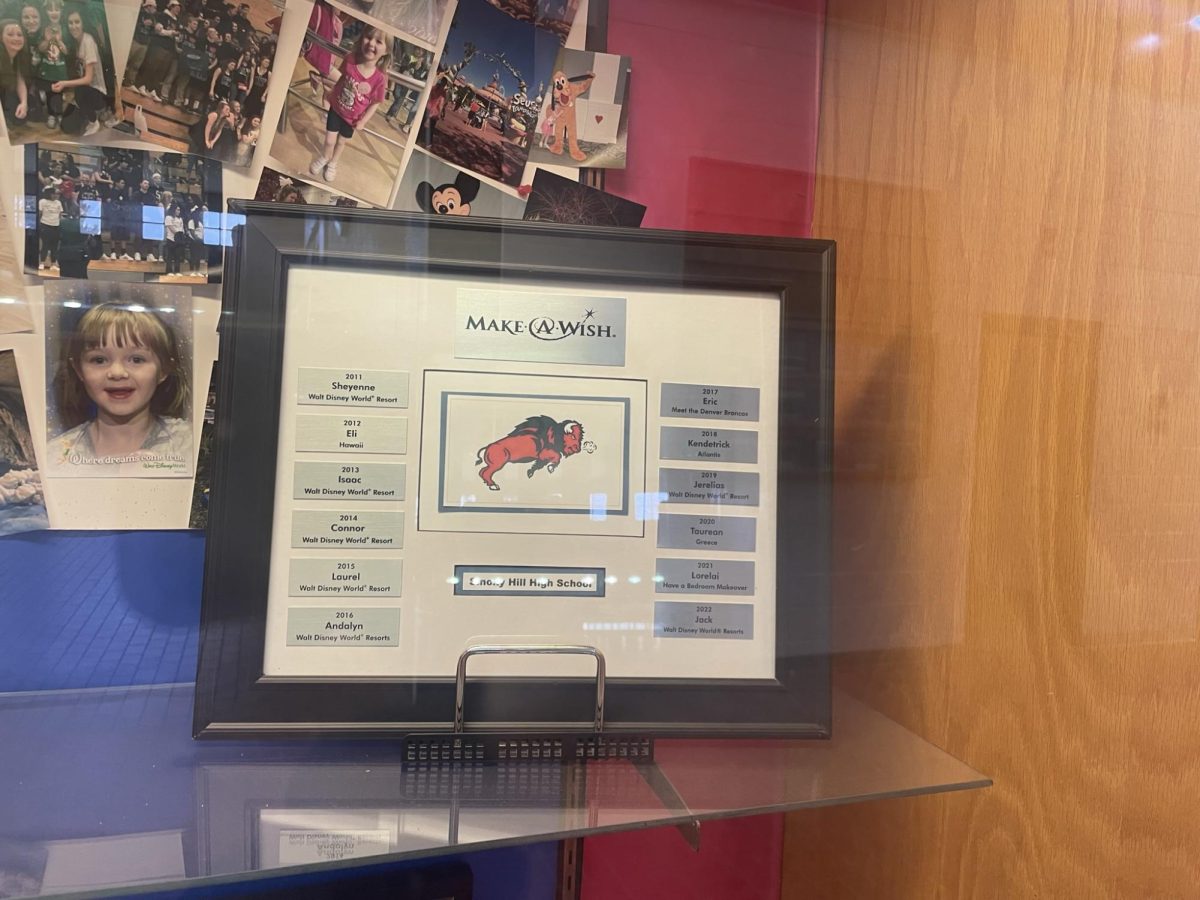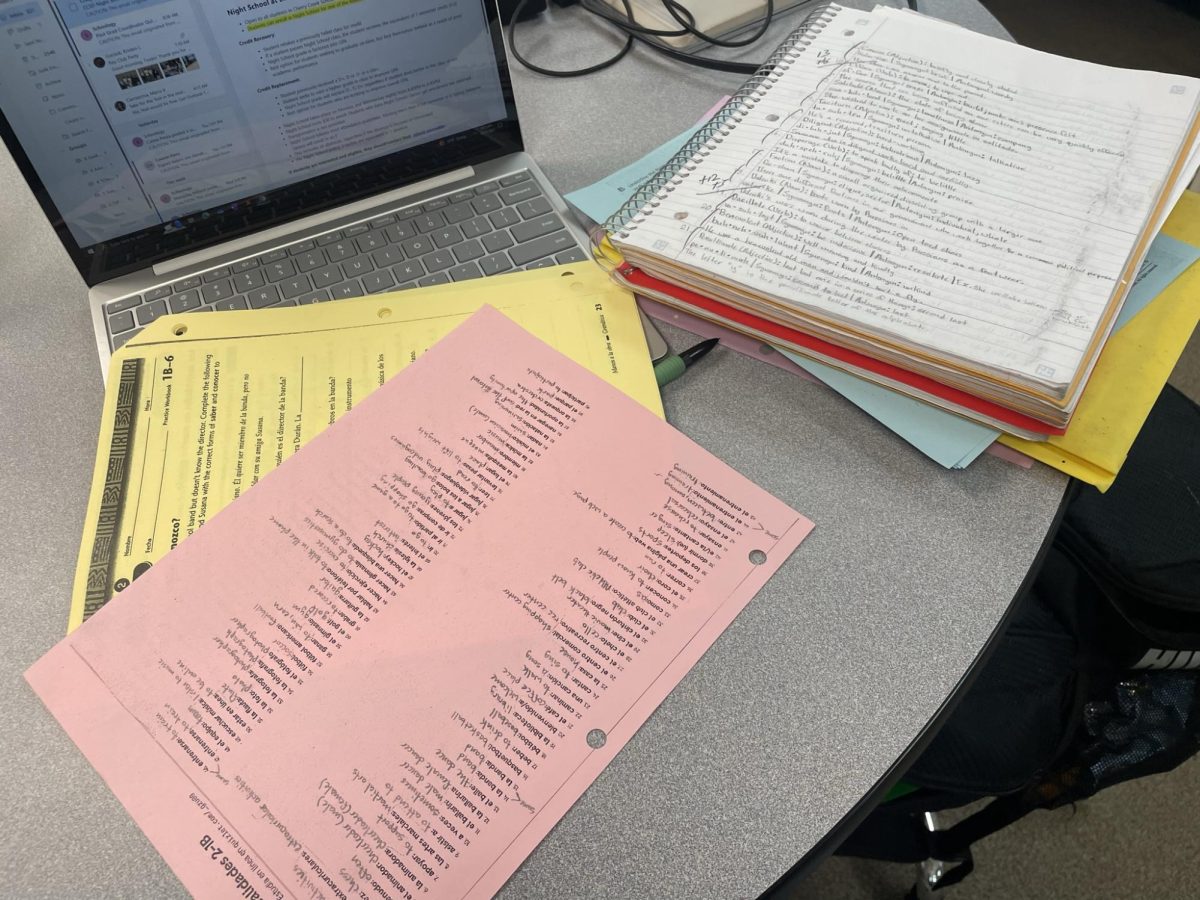Class of 2017, Here’s What Colleges Want
Colleges want students with good grades and experience outside the classroom
May 13, 2016

As many of us begin to start the rest of our lives by attending college, there are others that are anxiously awaiting the process. As the college process is never the same for everyone, there is always a general constant: what colleges are looking for in their candidates. Despite the transcript, there are other factors in which universities are keeping an eye out for.
As expected, a transcript is the initial thing that admissions offices will want. Colleges will look at an applicant’s GPA first, followed by the course selection. Has this student pushed themselves? Did this applicant take easy classes? Beyond the GPA, admission counselors want to see that a student has adequately attempted to prepare for the college course load, meaning AP, IB, or honors classes. While grade level classes may be enough for some students, colleges prefer to see an attempt, at least, at a challenging class. Not only do they view over the coursework and GPA, but also progression. It is better to have a terrible start during freshman year, rather than a lousy finish in the last semester of senior year. Admission decisions can always deferred if the admissions office is not satisfied with grades following acceptance.
Okay, so not everyone will be valedictorian, with a 4.0 GPA, and colleges (most) will understand that. Also taken into consideration, are test scores. Whether it will be the ACT or SAT, a test score can make up for something else, potentially. While the national average is a 19, a majority of colleges, both public and private, will prefer a higher score. An average state university will look for test scores in between 23-28, accepting lower and higher which is case-by-case basis. A high test score can often give a student with a low GPA the benefit of the doubt. Colleges like to take both into consideration because some students may be excellent test takers, while another may excel in homework assignments. The majority of schools will allows accept “superscoring”, which is taking the cumulative of several scores to produce a higher one. This, however, is only applicable to the ACT. Also, depending on the college, some will be more inclined to one or the other.
While GPA and test scores are a relatively accurate prediction of what kind of student someone is or will be, most universities want well-rounded individuals, which means extracurriculars. This does not simply just means sports. While sports can be an impressive portion on an application, colleges want see consistency in these extracurriculars. With that being said, it is better to be captain on the basketball team and a player for four years, rather than joining twelve different clubs over the course of four years. Universities consider extracurricular as anything done outside of the classroom, which means clubs, sports, jobs, internships, volunteering, or community service. Not everyone feels comfortable with athletics and would rather join Model UN. That’s fine. Regardless of the activity, colleges want students who have a sense of the world, in one way or another. One a college application, it is impressive to have the ultimate position of involvement. For example, being Editor-In-chief of yearbook, captain of a soccer team, or the MIC at a job. This not only shows consistency, but also passion, reliability, and trustworthiness.
What some dread, and others find their time to shine, is the essay. Some colleges consider the essay a “make or break” factor. Through the essay, an admissions officer should learn a quality trait about the individual and what would make them a good match for the university. Essentially, they don’t want to read, “When I lost my phone, I …” because that shows very little about the individual’s character. Whether the topic is chosen from the Common Application or directly from the university, it is always important make sure that the essay showcases quality traits and something that makes one relatable to other students. While some breeze right over it, a make or break factor is proper grammar and correct punctuation. Spelling errors and incorrect punctuations shows that, 1) one may not be ready for college, 2) it is not important to them. The best way to prevent looking nonchalant is to have it proofread SEVERAL times, and not to procrastinate. Admissions officers have read numerous essays, they can tell when someone is passionate about the topic or not.
There is not a rulebook that guides students through the college process flawlessly. It is an unforgettable experience, whether that is good or bad. Regardless, when you find a college that is a good fit, make sure you impress them, simply by doing a few things: having a decent GPA and test score, being well-rounded, and providing a memorable essay.




































